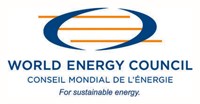
Top stories






More news

Marketing & Media
Warner Bros. was “nice to have” but not at any price, says Netflix

Logistics & Transport
Maersk reroutes sailings around Africa amid Red Sea constraints

















As the pressure grows to act on climate change and to assist policymakers to focus their efforts in meeting the "energy trilemma", the World Energy Council (WEC) has published its 2011 Assessment of Country Energy and Climate Policies, which includes the annual global "Energy Sustainability Index".
Over the past three years this ranking has examined over 60 data sets to provide a detailed analysis of 92 countries' energy and climate policies, and sets out their ability to provide a stable, affordable and environmentally sensitive energy system.
The report also highlights where policymakers can make a difference and helps them to create better policies to ensure that we have a chance of limiting global temperature rise to 2ºC. The report sets out key takeaways that help countries to produce better energy policies that balance the need for climate change mitigation, whilst delivering sustainable growth for their populations.
Speaking at the launch of the 2011 report, Pierre Gadonneix, chairman of the World Energy Council said: "As countries struggle to provide for energy security, social equity and the increasingly pressing environmental impact-mitigation measures, policymakers must favour resilient systems. I call "resilient" a system that allows us to pursue, year after year, on a continuing process, our long-term objectives and, at the same time, is flexible enough for us to capitalise on unexpected opportunities, like technological breakthroughs and innovations, and overcome unforeseen obstacles, like prices volatility."
The 2011 Index shows that those countries in the top five have the most coherent and robust energy policies. They are also the most successful at managing the trade-off between the three dimensions of the "energy trilemma": energy security, social equity and environmental impact mitigation.
Top five countries in the 2011 Energy Sustainability Index:
Mark Robson, partner of the leading global management consulting firm Oliver Wyman, project partners for the report, explained that: "Leading countries, mostly mature economies, show low energy demand growth and robust policy environments. These are supported by well-established energy-efficiency programmes and a balance between affordable energy and pricing that enables investment."
Despite good performance of the top five, no country leads in all three areas of the "energy trilemma". The report highlights the need for increased dialogue and an open and honest approach to setting out the trade-offs that are required to develop affordable, stable and environmentally sensitive energy frameworks. These trade-offs mean that there will inevitably be winners and losers in the short-term. But, if those choices are made transparent and explicit, and most importantly are led by a clear long term vision, then they will gain acceptance, commitment and investment from energy leaders and from the public.
Addressing the underlying issues identified in this year's assessment, the executive chairman of the report, Joan MacNaughton, said: "This report shows that market-led solutions are not enough on their own to achieve energy sustainability. Only with coherent and robust policies, led by a clear vision, can countries reach equilibrium in the long-term. Countries must adopt stable regulatory regimes if they are to regain investors' trust and support the huge volumes of capital investment required to ensure a stable supply of energy."
Building on WEC's previous assessments, this year's report has focused on three critical key issues - transport, energy efficiency and finance - where policymakers should focus their efforts. With the energy system generating approximately 60% of total GHG emissions, only significant improvements in these key areas will countries be able to meet rising energy demand, while working to limit the growth in CO2 emissions.
Christoph Frei, secretary general of WEC said: "Today, the overall transport sector represents a quarter of total CO2 emissions. We project that CO2 emissions from transport could be 80% higher in 2050. However, with clear policies that empower governments, the public and private sector to intervene, we could limit this increase to 15%. This is significant but we must act now."
This report will be shared with policymakers gathering in Durban to attend the COP17 meeting. Through this report WEC will encourage policymakers and leaders in the energy sector to address all the dimensions of the "energy trilemma" as a long-term solution to solve tomorrow's energy challenges. Joan MacNaughton, who will be joining delegates in Durban, added: "As we approach the COP17 meeting and next year's conference on Sustainable Development in 2012 in Rio, these issues take on additional importance. They will determine to a large extent the ability of emerging and developing countries to set policy frameworks that will build markets and attract private investment."
In conclusion, the chairman of WEC, Pierre Gadonneix, said: "With the uncertain economic outlook the need for more robust investment frameworks is now even more critical to attract the massive investment that is needed in the energy sector to achieve the energy trilemma: energy security, climate and environment protection and the eradication of energy poverty."
He added: "In particular, public policies must provide the market with robust frameworks and typically grant actors with: prices that reflect real costs; long-term visibility; an implicit or explicit CO2 price; and an assumed responsibility of states to develop and ensure safety and acceptance, as well as environmental standards."